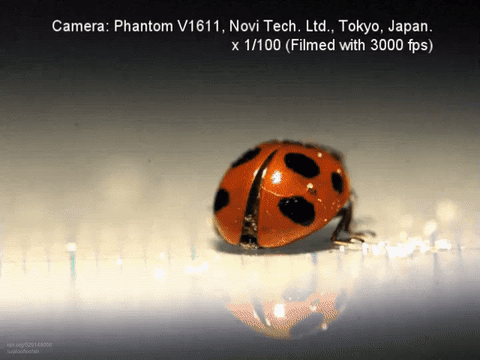Continuing From Last Week’s Bread-making Post, Here’s A Look At What’s Behind The Smell Of Fresh-baked

Continuing from last week’s bread-making post, here’s a look at what’s behind the smell of fresh-baked bread! http://wp.me/p4aPLT-1Fe
More Posts from Theperpetualscholar and Others

Today marks the birthday of Alfred Nier (1911-1994), a pioneer in the field of mass spectrometry. Here’s a brief mass spectrometry introduction! PDF here: http://wp.me/p4aPLT-1bw



Nictitating Membrane: a transparent or translucent third eyelid present in some animals that can be drawn across the eye for protection and to moisten it while maintaining vision
Tibia (2).
The tibia is a long bone.

Image Source: Anatomography. Tibia. Wikimedia Commons.
It also known as the shinbone. The tibia is the larger, stronger, and most anterior (frontal) of the two bones in the leg below the knee.
The tibia is found on the medial side of the leg, closer to the median plane or centre-line of the body.


It is the second largest bone in the human body next to the femur.
The leg bones are the strongest long bones because they support the rest of the body.

Above are some notes I made to better understand the orientation of the tibia.




This Facial Reconstruction of Henri IV King of France by French artist Philippe Froesch is Mindblowing!
This was all done digitally through a combination of programs like Cinema4d and Zbrush. Traditional methods are still used in his digital reconstructions as you can see in the bottom left picture. The dots poking out from the skull are facial tissue depth markers. They tell the reconstruction artist how thick the tissues should be at certain points on the skull based on large collections of data.

How ladybugs unfold their wings

* Assuming that the whole planet stays intact, and that the whole core of Saturn will not slide down from the gaseous atmosphere. (I do not wish to see the destruction of the whole planet.) Saturn will only float in theory because it is lighter than water. Of course if you literally get Saturn into a tub of water, there would be a lot of issues. They are addressed in his article. But overall, for something so huge and stellar, it can still be less dense than water!

The Neuroscience of Serial Murder
Why do serial killers commit heinous acts of murder? The answer may be found in the reward center of our brains, or the Nucleus Accumbens. This is where dopamine is created. When you eat sugar, snort cocaine, snack on chocolate, or have sex, that reward center is triggered and dopamine is released. This chemical conveys the feeling of pleasure, reinforcing those prior indulgences you’ve engaged in. If a serial killer has linked sex with torture, killing, or dismemberment, his brain is sending him a signal, making him feel rewarded for his behavior. It’s the same feeling we may get from eating some chocolate ice cream after a long day or a really good orgasm. A serial killer’s brain reinforces his behavior, telling him that whatever he is doing is good and that he should keep doing it. This may explain why serial killers often do not stop until they are caught.

Mimosa pudica is an herb of the pea family and is known for its compound leaves that fold inward and droop when touched or shaken. This defense mechanism protects the leaf from harm and allows for reopening a few minutes later.
FREE MEDICAL PDFs
Anatomy:
1–> KLM for Gross Anatomy
2–> Snell’s Anatomy
3–> BD Churassia
4–> RJ Last
5–> Grey’s Anatomy
6–> Langman Embryology
7–> KLM for Embryology
8–> BD For General Anatomy
9–> Dissector
10–> Di Fore Histology
11–> Junqueira’s Histology
12–> Netter Atlas of human Aantomy
Folder link–> https://drive.google.com/open?id=0B3WdpdsqpX0LYV9KQ3lxY29FY28
Physiology:
1–> Guyton
2–> Ganong
3–> Sheerwood
4–> Sembulingam
Folder link–> https://drive.google.com/open?id=0B3WdpdsqpX0LdXlCSjdZM214dEE
Biochemistry:
1–> Harper
2–> Lippincott
3–> Chatterjea
4–> Satyanarayan
5–> Stryer
6–> MRS Biochemistry
Folder link–> https://drive.google.com/open?id=0B3WdpdsqpX0Ld0o3WnhCR2VEczg
Pathology:
1–> Big Robins
2–> Medium Robins
3–> Pathoma
4–> Goljan
5–> Harsh Mohan Pathology
6–> Atlas of Histopathology
7–> Levinson
8–> MRS microbiology
9–> Microbiology by Jacquelyn G. Black
10–> Color Atlas of Microbiology
11–> Kaplan Pathology
Folder link–> https://drive.google.com/open?id=0B3WdpdsqpX0LYkRYdjFrTm5MR0U
Pharmacology:
1–> Big Katzung
2–> Mini Katzung
3–> Kaplan Review
4–> Lippincott
5–> Pocket Katzung
6–> Rang and Dale’s Pharmacology
7–> Atlas of Pharmacology
Folder link–> https://drive.google.com/open?id=0B3WdpdsqpX0LMkE1UUVRZGwtTlU
Forensic Medicine:
1–> Simpson’s Forensics
2–> Krishan’s Forensics
3–> Atlas of Autopsy
4–> Atlas of Forensic Medicine
Folder link–> https://drive.google.com/open?id=0B3WdpdsqpX0LQXVwOGoyWnFSV2s
Ophthalmology:
1–> Jogi
2–> Jatoi
3–> Parson’s Textbook of Eye
4–> Kanski
5–> AK Khurana
6–> Atlas of ophthalmology
Folder link–> https://drive.google.com/open?id=0B3WdpdsqpX0LOHc5WVZMdkJjX2M
Otorhinolaryngology:
1–> Dhingra
2–> Logans Turner
3–> Color Atlas of Otorhinolaryngology
4–> Maqbool’s Text Book of ENT
5–> Clinical Methods in ENT by PT Wakode
6–> ENT at a Glance
Folder link–> https://drive.google.com/open?id=0B3WdpdsqpX0LaDY2a0lFNDlfTGc
Community Medicine:
1–> Monica’s Text Book Community Medicine
2–> Mahajan And Gupta Text Book of Community Medicine
3–> Bancroft’s Text Book of Community Medicine
Folder link–> https://drive.google.com/open?id=0B3WdpdsqpX0Lc1RCMml2NjhFNjA
Internal Medicine:
1–> Churchill’s Pocketbook of DD
2–> MTB Step 2 Ck
3–> Davidson Essentials
4–> Davidson Principals and practice
5–> Harrison’s Internal Medicine
6–> Internal Medicine USMLE Nuggets
7–> Internal Medicine on call bt LANGE 8–> Oxfords Specialties
Folder link–>https://drive.google.com/open?id=0B3WdpdsqpX0LeEFJNG5TMlc4eWc
Surgery:
1–> Bailey_love short practice of Surgery
2–> Churchill’s pocketbook of Surgery
3–> Deja Review of surgery
4–> Farquharson’s Textbook of Operative General Surgery
5–> Hamilton Bailey’s Physical Signs
6–> Oxford Handbook of Clinical Surgery
7–> Schwartz’s Principles of Surgery
8–> Macleod’s Clinical Examination
9–> Macleod’s Clinical Diagnosis
Folder link–>https://drive.google.com/open?id=0B3WdpdsqpX0LRFpFSG5hZ1pVWkE
Obstetrics & Gynecology:
1–> Case Discussions in Obstetrics and Gynecology
2–> Deja Review of Obstetrics Gynecology
3–> Obstetrics by Ten Teachers
4–> Gynaecology illustrated
5–> Gynaecology by Ten Teachers
Folder link–>https://drive.google.com/open?id=0B3WdpdsqpX0LMU1LRjFDa1FrbjA
Pediatrics:
1–> Nelson Essentials of Pediatrics
2–> Nelson Complete
3–> Pediatrics Review
Folder link–>https://drive.google.com/open?id=0B3WdpdsqpX0LUkdTQkVuNV92Yzg
I hope this helps everyone, it’s not mine. But has been shared to me and I am sharing this with all of you.
-
 rosebella2016 liked this · 1 year ago
rosebella2016 liked this · 1 year ago -
 nicolofia liked this · 1 year ago
nicolofia liked this · 1 year ago -
 budameat liked this · 2 years ago
budameat liked this · 2 years ago -
 newsvillage liked this · 2 years ago
newsvillage liked this · 2 years ago -
 eric-generic reblogged this · 2 years ago
eric-generic reblogged this · 2 years ago -
 expandthyknowledge reblogged this · 3 years ago
expandthyknowledge reblogged this · 3 years ago -
 izy-i-blog liked this · 7 years ago
izy-i-blog liked this · 7 years ago -
 goodheadsucker liked this · 7 years ago
goodheadsucker liked this · 7 years ago -
 chrysocollaandcocacola liked this · 7 years ago
chrysocollaandcocacola liked this · 7 years ago -
 theperpetualscholar reblogged this · 8 years ago
theperpetualscholar reblogged this · 8 years ago -
 createscience-blog reblogged this · 8 years ago
createscience-blog reblogged this · 8 years ago -
 limarioa-blog liked this · 8 years ago
limarioa-blog liked this · 8 years ago -
 grangerdanger1001 liked this · 8 years ago
grangerdanger1001 liked this · 8 years ago -
 lieutenant-blackwell reblogged this · 8 years ago
lieutenant-blackwell reblogged this · 8 years ago -
 tinuon liked this · 8 years ago
tinuon liked this · 8 years ago -
 mahajkhan liked this · 9 years ago
mahajkhan liked this · 9 years ago -
 healingdryad reblogged this · 9 years ago
healingdryad reblogged this · 9 years ago -
 milo2701-blog liked this · 9 years ago
milo2701-blog liked this · 9 years ago -
 joellelynnbrown reblogged this · 9 years ago
joellelynnbrown reblogged this · 9 years ago -
 akari-yuki reblogged this · 9 years ago
akari-yuki reblogged this · 9 years ago -
 thehouseofwtfblog reblogged this · 9 years ago
thehouseofwtfblog reblogged this · 9 years ago -
 brucewombs liked this · 9 years ago
brucewombs liked this · 9 years ago -
 applepieisgood liked this · 9 years ago
applepieisgood liked this · 9 years ago -
 froghair liked this · 9 years ago
froghair liked this · 9 years ago -
 sakilla liked this · 9 years ago
sakilla liked this · 9 years ago -
 mlle-ophelia reblogged this · 9 years ago
mlle-ophelia reblogged this · 9 years ago -
 fucktheconformity liked this · 9 years ago
fucktheconformity liked this · 9 years ago -
 worclip liked this · 9 years ago
worclip liked this · 9 years ago -
 notcakebythemlbs liked this · 9 years ago
notcakebythemlbs liked this · 9 years ago -
 tadmad liked this · 9 years ago
tadmad liked this · 9 years ago -
 japerezle liked this · 9 years ago
japerezle liked this · 9 years ago -
 micheldongry666 liked this · 9 years ago
micheldongry666 liked this · 9 years ago -
 generic-art reblogged this · 9 years ago
generic-art reblogged this · 9 years ago -
 birdsbirdsbirds--andperhapsapug liked this · 9 years ago
birdsbirdsbirds--andperhapsapug liked this · 9 years ago